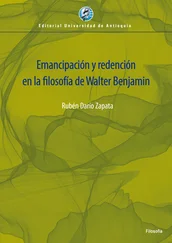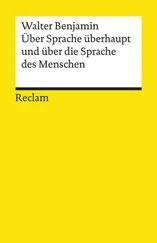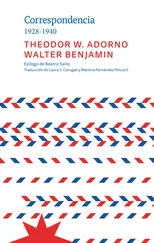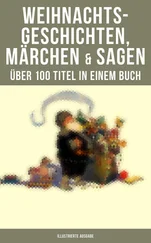Three hundred years ago it went without saying that if a witch walked into a field and raised her hand to the sky, hailstones would shower down on the crops. With a glance she could bewitch a cow, so that blood instead of milk would come from her udder. She could bore into a willow tree in such a way that milk or wine would flow from its bark. She could transform herself into a cat, a wolf, or a raven. Once suspected of witchcraft, people could go about their lives as they wished, but there was nothing they could do that wouldn’t strengthen the suspicion they were under. So, at home or in the fields, in word or deed, at church or at play, there was nothing back then that malicious or stupid or crazy people couldn’t somehow link to witchcraft. And still today certain terms remind us of how the most innocent and naturally occurring things were associated with this belief: witches’ butter (frogspawn), witches’ ring (the circular formation of mushrooms), witches’ mushroom, witchweed, and so on. But if you would like to read a very short summary, a sort of guide to the life of witches, ask for the play Macbeth by Shakespeare. There you will also see how people thought of the devil as a severe master, to whom every witch had to answer, and in whose honor they committed their evil tricks and misdeeds. Even the simplest of men knew as much about witches as you will after reading Macbeth, while philosophers knew a good deal more. They advanced evidence for the existence of witches that was so illogical, a ninth-grader today would not get away with it in an essay for school. In 1660 one of them wrote: “He who denies the existence of witches also denies the existence of spirits, because witches are spirits. But he who denies the existence of spirits also denies the existence of God, because God is a spirit. Therefore, he who denies witches denies God.”
Fallacy and nonsense are bad enough. But they become very dangerous when order and logic are added to the brew. Such was the case with those who believed in witchcraft; the stubbornness of the scholars caused much greater misery than superstition had. We have already mentioned the scientists and philosophers. But there were worse culprits: the jurists. Which brings us to the witch trials — save for the plague, the most horrible scourge of its time. They spread like an epidemic, jumped from one land to the next, reached their apogee only to diminish temporarily, and seized on young and old, rich and poor, jurists and mayors, doctors and naturalists. Church elders, ministers, and clergymen were burnt at the stake alongside snake charmers and carnival actors, to say nothing of the women of all ages and social standing who suffered in even far greater numbers. We can no longer count how many people in Europe perished as witches and warlocks, but it’s certain to have been at least 100,000, perhaps many times more. I have already mentioned that frightful book, The Witches’ Hammer, published in 1487 and reprinted countless times. Written in Latin, it was a handbook for inquisitors. Inquisitors, interrogators really, were monks who had been invested, directly by the pope, with special powers to combat heresy. Since witches were always seen as heretics, they were targeted by the inquisitors. While one might think that no one would covet such a wretched task, there were still other jurisdictions burning to join in the fight against witches. There were both the regular ecclesiastical court of bishops and the regular secular court, the latter being harsher.
The burning of witches was not a part of old Church law, so for a long time, punishment for witches consisted merely of excommunication and prison. In 1532 Charles V introduced his new book of laws, the so-called Carolina, or “Procedure for The Judgment of Capital Crimes,” which called for those practicing witchcraft to be burned at the stake. But there was still the stipulation that actual harm must have occurred. Many jurists and princes found this law to be too mild and preferred to follow Saxon law, under which all wizards and witches could be burned, even if they had inflicted no harm. These multiple jurisdictions resulted in such terrible confusion that there was no longer any question of law and order. On top of all this came the notion that witches were possessed, inhabited by the devil; thus, people believed that they were contesting the superiority of the devil and that in this fight everything was allowed. Nothing was too horrible or too nonsensical for the jurists of the day to be at a loss for a Latin word to describe it: witchcraft was deemed a crimen exceptum, an exceptional crime, meaning a crime for which those accused could hardly ever defend themselves. They were treated as guilty from the very start. Even if they had counsel, there was not much the latter could do, because the suspicion was that any advocate who too eagerly defended those accused of witchcraft was probably a wizard himself. Jurists tended to see witchcraft cases purely as matters of professional expertise, which they alone possessed. The most dangerous principle they espoused was the following: in crimes of witchcraft a confession would suffice, even if no proof were found. For those who know that torture was the order of the day in witch trials, it’s plain to see how little such confessions were worth. One of the most astonishing things about this story is that over 200 years went by before it occurred to jurists that confessions given under torture have no value. Perhaps because their books were so jammed full of the most unlikely and dreadful, hairsplitting minutia, they couldn’t entertain the simplest of thoughts. And what’s more, they believed they were staying wise to the devil and his tricks. If, for example, the accused was keeping silent, because she knew that every word she said, however innocent, would get her deeper into trouble, the jurists would claim this was “Devil’s lockjaw,” meaning that the Evil One had hexed her, leaving her unable to speak. So-called witch tests, used when occasionally the proceedings needed to be shortened, were equally effective. For example, the test of tears. If someone did not cry under torture, it was considered proof that she was being aided by the devil; it would again be 200 years before doctors made the observation, or dared to utter the fact, that people suffering extreme pain do not cry.
The fight against the witch trials is one of the greatest liberation struggles in the history of man. It began in the seventeenth century and took 100 years to succeed, in some countries even longer. It began, as such things very often do, not with a realization, but out of necessity. Over the course of a few years individual princes saw their lands grow desolate as their subjects accused one another under torture. One single trial could spawn hundreds more, taking up years. Some princes started to simply forbid these trials. People gradually dared to reflect. Clergymen and philosophers discovered that belief in witches never existed in the early Church, that God would never grant the devil so much power over men. Jurists came to understand that slander and confessions provoked under torture could not be relied upon as evidence. Doctors reported that there were illnesses that made people think they were wizards or witches even when they weren’t. And finally, healthy common sense prevailed as people acknowledged the countless contradictions in the case files of individual witch trials and in the belief in witchcraft itself. Of the many books written at that time against the witch trials, only one became famous. It was written by a Jesuit named Friedrich von Spee. In his younger years he was a confessor at the deaths of condemned witches. When one day a friend asked him why he had gray hair at such a young age, he replied: “Because I’ve had to accompany so many innocent victims being burned at the stake.” His book, Cautio Criminalis, or a Book on Witch Trials, is not particularly subversive. 3Friedrich von Spee actually believed in the existence of witches. But he outright refused to believe in the horrific, erudite, elaborate, fantastical evidence used for centuries to brand just about anyone a witch or a wizard. In this one work he confronted all the ghastly Latin-German gibberish in thousands upon ten thousands of case files, letting his anger and emotion spew forth. His work and its impact proved how necessary it is to place humanity above scholarship and subtlety.
Читать дальше












